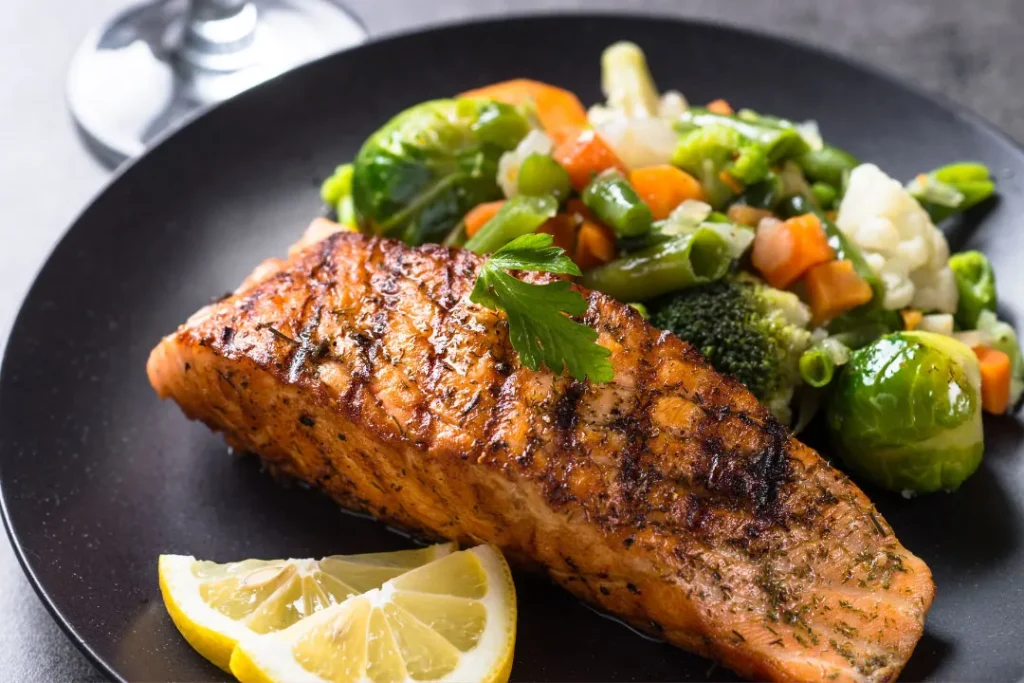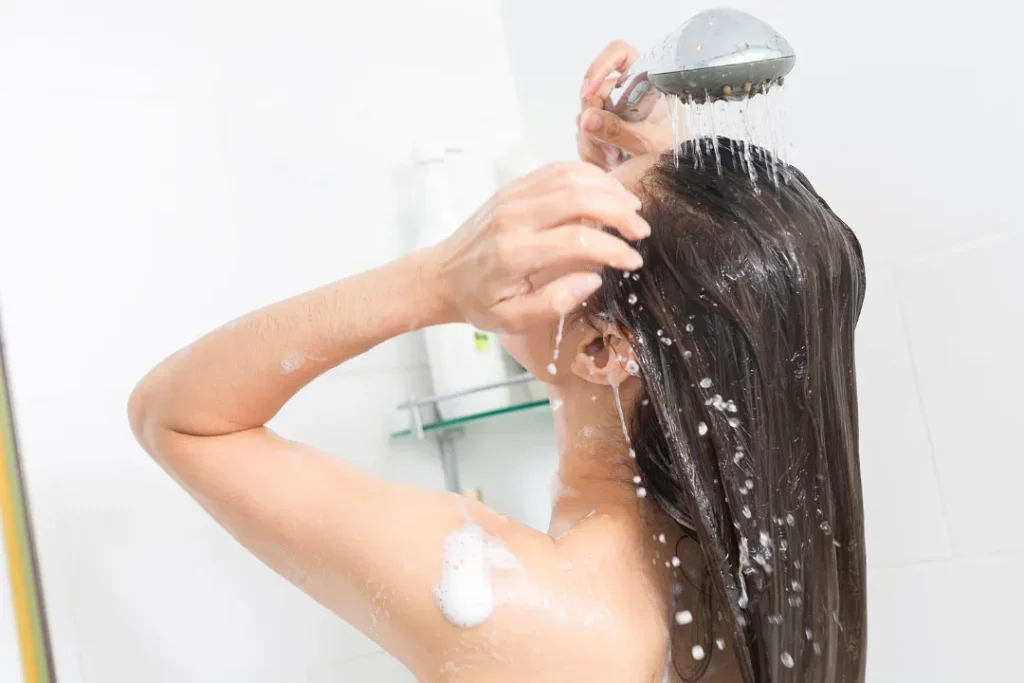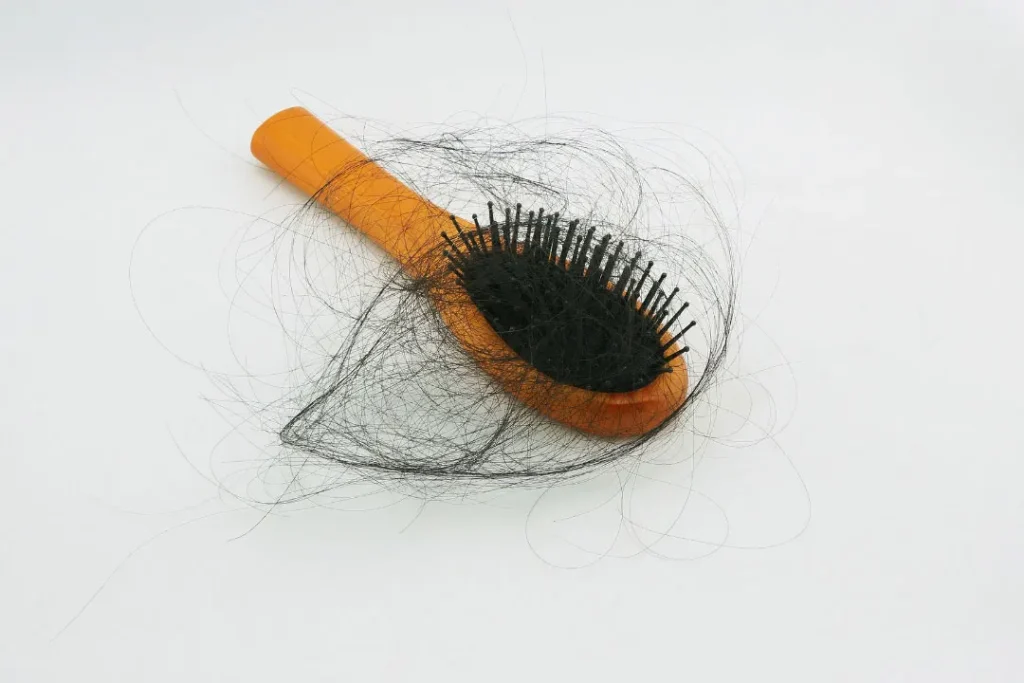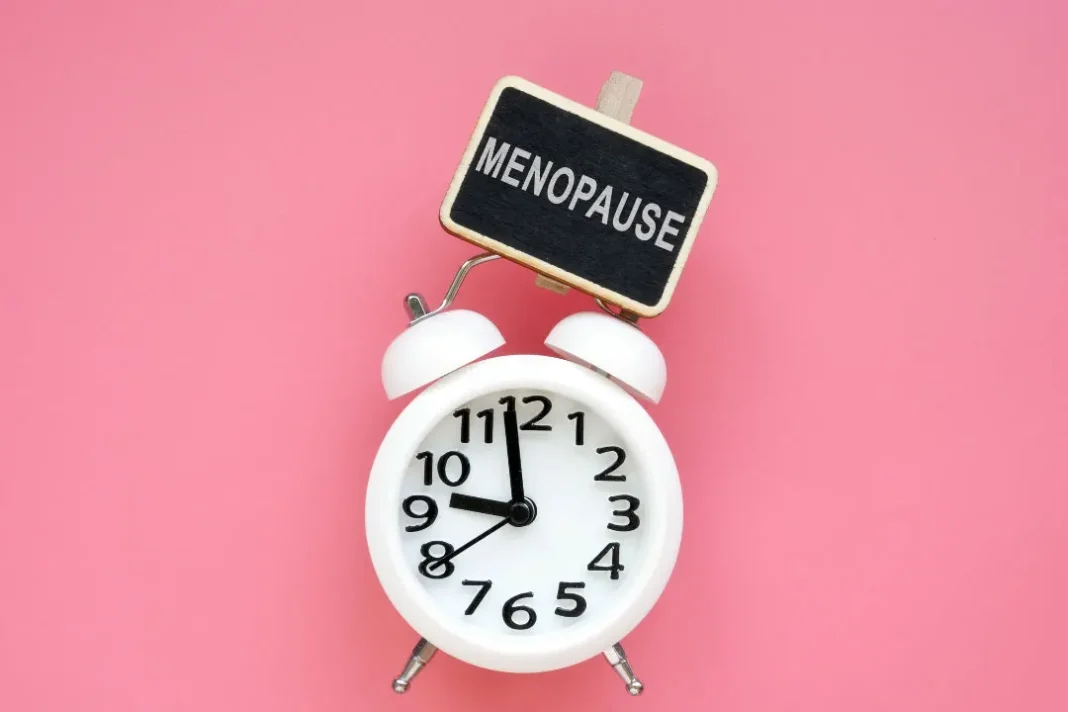Peri menopause is a transitional phase in a woman’s life that occurs before menopause. During this time, many women may also experience an alarming occurrence: hair loss. But is there a causal link? We’ll discuss and address the possible connection between peri menopause and hair loss.
When women reach a certain age, generally between 45 and 55 years old, menopause begins. Before this, however, a period called peri menopause sets in, signaling the start of the permanent end of a woman’s menstrual cycle. This period can start up to two years before menopause fully sets in, though in more extreme cases, it will continue for up to ten years. Peri menopause presents many common symptoms, among them mood swings, hot flashes, poor sleep quality, and headaches. Another common symptom, and quite an alarming one, is hair loss.
During peri menopause, the density of estrogen in the blood lowers as androgen levels rise. Androgens are sex hormones. In women, they regulate menstruation, minimize bone loss, and play a role in pregnancy. When there are excess androgens in the body, which can occur during the frequent hormone changes characteristic of peri menopause, hair loss is an unfortunate side effect. The hair loss generally presents as a thinning of hair around the central and forehead areas of the skull. In some cases, hair will thin toward the back and bottom of the head as well.
If left unchecked, hair loss can be a significant confidence blow. Luckily, there are a handful of ways to support healthy hair amidst peri menopause and hair loss.
You May Also Like:
Stem Cell Therapy for Hair Loss: Pros and Cons
Breaking the Silence: Understanding the Connection Between Menopause and Hair Thinning
Peri Menopause and Hair Loss: Exploring the Connection is an original (HerHealthWatch) article.
Treating peri menopause and hair loss:
Diet
Concerning hair loss due to peri menopause, certain nutritional steps can be taken to restore hair growth. Foods high in omega-3 fatty acids, including salmon, flaxseed and olive oils, and almonds, may help prompt hair growth. A 2018 study, albeit on rodents, showed that the omega-3s in fish oil stimulated hair growth. Furthermore, a 2015 study found that a supplement containing omega-3 and omega-6 fatty acids reduced hair loss and improved hair density over six months.
Besides omega-3 fatty acids, incorporating green tea into your daily diet may encourage healthy hair. Research shows that the polyphenols in green tea may promote hair growth and decrease hair loss.

Treating peri menopause and hair loss:
Exercise
While going on a run or hitting the gym might not spur hair growth on its own, there are indirect hair benefits from breaking a sweat. Exercise helps to prevent some of the other symptoms that may occur during peri menopause. It may regulate mood swings, prevent weight gain, help with sleep, and decrease stress. These benefits can help with hormonal balance, which in turn keeps hair healthier. In the same vein, yoga and meditation are great ways to both exercise and deal with stress, which may keep those hormones in check and encourage healthy hair.

Treating peri menopause and hair loss:
Treat your hair with care
When hair loss is an ongoing issue, it’s best to eliminate other factors that may further inhibit hair growth. Blow driers, straightening irons, and hot rollers are excellent for hair styling, but applying heat to hair dramatically weakens it over time and can lead to additional thinning or breakage.
Similarly, hair extensions, coloring, and chemical procedures like perms should be considered with care. While there are safer, less damaging options for each, they’re likely to cause more hair loss headaches in the long run. Avoiding chlorine or covering your hair with a swim cap is also wise. Lastly, a hat in sunny weather can help to prevent further breakage.

Treating peri menopause and hair loss:
Supplements
There are various supplements on the market that treat different underlying causes of hair loss, and that includes hair loss related to peri menopause. One such supplement for this specific situation is a DHT blocker. DHT, also known as dihydrotestosterone, is a hormone that contributes to hair loss. DHT blockers protect hair follicles from shrinkage, enabling hair to both stay on the head and keep growing. Natural DHT blockers include saw palmetto, nettle leaf extract, and Reishi and Maitake mushroom extracts. These can all be found in supplements made by a variety of brands. The best supplements combine these DHT blockers with nutrients for the utmost hair health potential.
Solutions for peri menopause and hair loss:
Topical treatments
While supplements must be taken orally, other solutions for peri menopause hair loss can be applied topically. More Hair Naturally® 9 is a spray comprised of nine different ingredients, including three types of stem cells, probiotic plant extracts, and Capixyl™, a peptide complex that acts as a DHT blocker.
“Our product helps remove the DHT from the follicle, so the blood can start flowing back to the follicle itself, and then it creates a protective shield over the follicle so that DHT can’t build up,” says More Hair Naturally® CEO Mahryah Shain. “Then the follicle is bombarded with stem cells, probiotics, and amino acids to create strong, healthy hair again. If someone’s hair is thin, thinning, or shedding, we can help rebuild that follicle, and we can bring that hair back.” Shain says results start showing in 3 to 6 months, though he recommends sticking with treatment aggressively for six months to a year.
More Hair Naturally® also offers the Conditioner, which combines sunflower extract, seaweed, meadowfoam, silk, and sodium hyaluronate—the company’s signature patented ingredient—to increase shine, hydration, and bounce in damaged, thinning hair. In addition to functioning as a conditioning treatment during a shower, the Conditioner can also be used as a leave-in treatment to protect from sun rays, chlorine-filled pools, and salty oceans.

Peri menopause and hair loss:
It’s not hopeless
Thinning hair or constant shedding is an all-too-common yet not-oft-discussed symptom of peri menopause. Conversations about hair loss in women are necessary to destigmatize this issue and to encourage the development of additional treatments. But for those worried about thinning hair as a result of peri menopause, there are effective solutions that just might bring bounce and volume back to your hair.
For Further Reading:
Women’s Health: Menopause and hair loss: everything you need to know
Oprah Daily: Exactly What Happens to Your Hair During Menopause
Everyday Health: Help for Thinning Hair
Important Note: The information contained in this article is for general informational purposes only, and should not be construed as health or medical advice, nor is it intended to diagnose, prevent, treat, or cure any disease or health condition. Before embarking on any diet, fitness regimen, or program of nutritional supplementation, it is advisable to consult your healthcare professional in order to determine its safety and probable efficacy in terms of your individual state of health.
Regarding Nutritional Supplements Or Other Non-Prescription Health Products: If any nutritional supplements or other non-prescription health products are mentioned in the foregoing article, any claims or statements made about them have not been evaluated by the U.S. Food and Drug Administration, and such nutritional supplements or other health products are not intended to diagnose, treat, cure, or prevent any disease.



